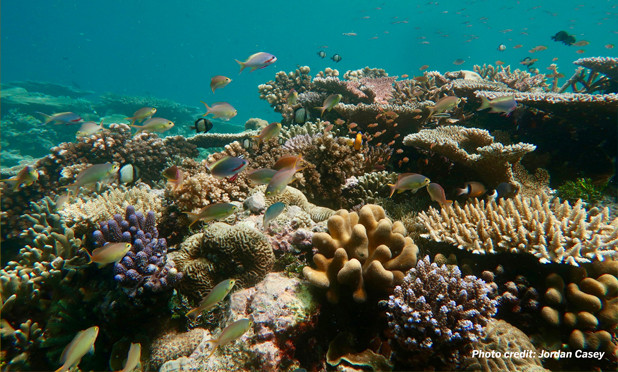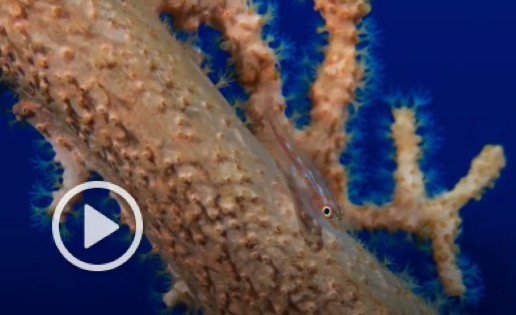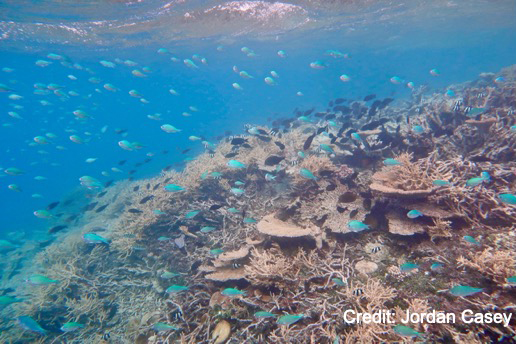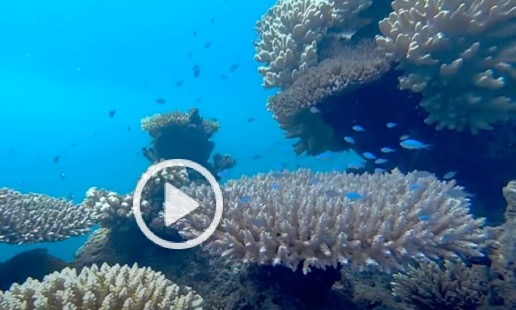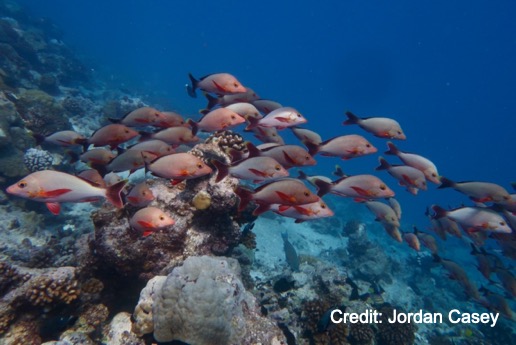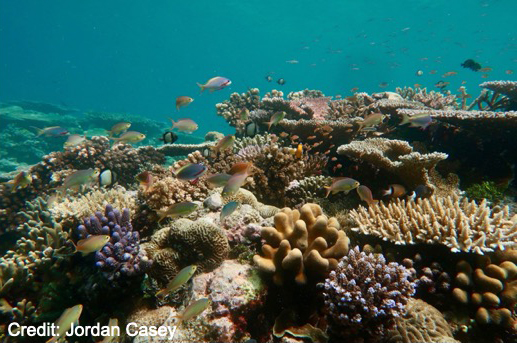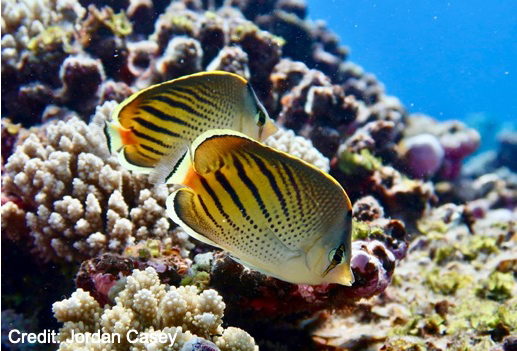We celebrate this Coral Week, November 28-December 4 with discoveries made about coral reefs and the fish that surround them by our Marine Science Institute researchers.
|
|
Similar to cryptocurrency, tiny fish called crypotbethics are fueling coral reefs Little known fish, called cryptobenthics, are extremely good at dying. In doing so, they may hold an answer to how coral reefs can be incredibly productive in nutrient poor waters. Read more in The Atlantic |
|
|
Coral reefs are the ocean’s most extravagant buffet As some of the most diverse ecosystems on the planet, coral reef have complex food webs. Assistant Professor, Jordan Casey untangled who is eating whom with DNA metabarcoding. This molecular technique is a powerful, precise and efficient way to parse fish gut content and understand coral reef food webs. Read more on the Methods in Ecology and Evolution blog |
|
The hottest reefs hold clues to our future Climate change isn’t just impacting coral directly, it’s also predicted to radically disrupt the small, cryptobenthic fish that fuel coral ecosystems. Get the full scoop in a paper in Nature Communications |
|
|
|
Movement patterns of reef fishes impact their role for corals Herbivorous fishes help corals by keeping algae in check. By tracking the movement of different algae-eating reef fish species, scientists can determine how they differ in their services to corals. Check out the paper in Ecology and Evolution |
|
|
Young corals help reefs bounce back after disasters After severe disturbances like storms or heatwaves, the smallest coral colonies help reefs recover. Yet, as these disturbances become more frequent due to climate change, baby corals may no longer exist. Read the paper at Global Change Biology |
|
|
Loss of picky-eating fishes threatens coral reef food webs Networks of predator fishes and their prey on coral reefs all over the world are remarkably similar, and those predators are pickier eaters than previously thought. These delicate ecosystems become vulnerable when these specialized feeders go extinct. Learn more about it at UT News. |




